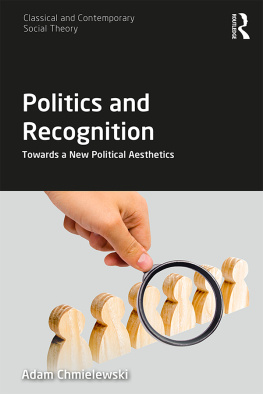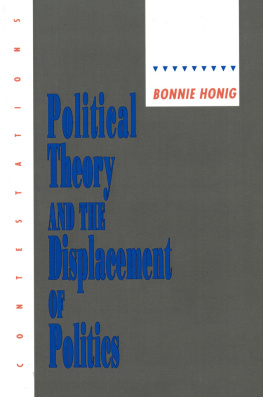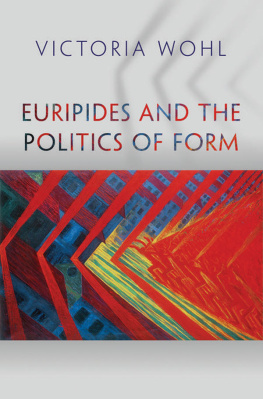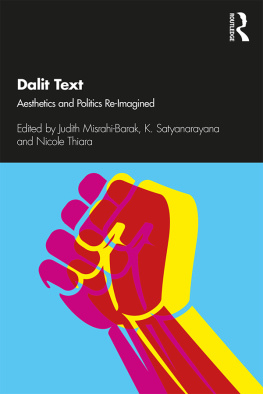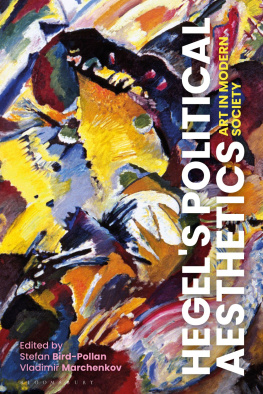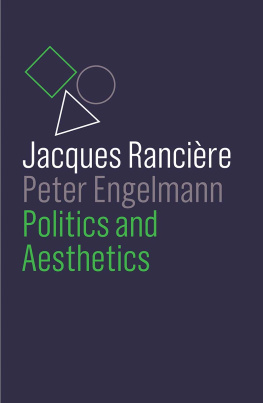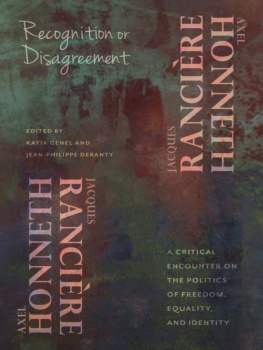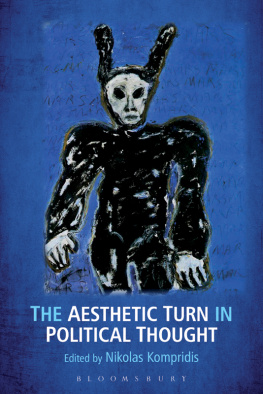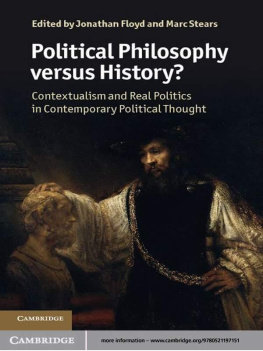Politics and Recognition
This book outlines a new conception of political aesthetics based on the notion of order as an aesthetic category pertaining to human perception. Engaging with the thought of a range of figures, including Veblen, Honneth, Foucault, Popper, and MacIntyre, it explores the nature of political aesthetics as an enquiry into the ways in which politics and our perceptions shape one another and our moral choices. Moving beyond the consideration of politics as a matter of perception, the author employs the concept of recognition to shed fresh light on the normative dimensions of politics, before presenting a series of case studies designed to show the utility of this conception of political aesthetics for explaining contemporary urban social phenomena and political conflicts. As such, Politics and Recognition will appeal to sociologists, philosophers, and political social theorists.
Adam Chmielewski is Professor of Social and Political Philosophy at the Institute of Philosophy, University of Wrocaw, Poland. His research interests lie in social and political philosophy, moral philosophy, philosophy of science, and philosophy of urbanism. He has written books and articles on Karl Poppers philosophy of science, the problem of relativism, and contemporary issues in political philosophy, and is the founding editor of the philosophical quarterly Studia Philosophica Wratislaviensia. As a social and cultural activist, he put together a victorious bid for the city of Wrocaw for the title of European Capital of Culture 2016, and has worked as a cultural advisor for several European municipalities.
Classical and Contemporary Social Theory
Series Editor: Stjepan G. Mestrovic, Texas A&M University, USA
Classical and Contemporary Social Theory publishes rigorous scholarly work that re-discovers the relevance of social theory for contemporary times, demonstrating the enduring importance of theory for modern social issues. The series covers social theory in a broad sense, inviting contributions on both classical and modern theory, thus encompassing sociology, without being confined to a single discipline. As such, work from across the social sciences is welcome, provided that volumes address the social context of particular issues, subjects, or figures and offer new understandings of social reality and the contribution of a theorist or school to our understanding of it.
The series considers significant new appraisals of established thinkers or schools, comparative works or contributions that discuss a particular social issue or phenomenon in relation to the work of specific theorists or theoretical approaches. Contributions are welcome that assess broad strands of thought within certain schools or across the work of a number of thinkers, but always with an eye toward contributing to contemporary understandings of social issues and contexts.
Titles in this series
Emotions through Literature
Fictional Narratives, Society and the Emotional Self
Mariano Longo
The Appeal of Art in Modernity
Michael Symonds
Politics and Recognition
Towards a New Political Aesthetics
Adam Chmielewski
The Ultimate Sacrifice
Martyrdom, Sovereignty, and Secularization in the West
Clayton Fordahl
For more information about this series, please visit: https://www.routledge.com/sociology/series/ASHSER1383
First published 2020
by Routledge
2 Park Square, Milton Park, Abingdon, Oxon OX14 4RN
and by Routledge
52 Vanderbilt Avenue, New York, NY 10017
Routledge is an imprint of the Taylor & Francis Group, an informa business
2020 Adam Chmielewski
The right of Adam Chmielewski to be identified as author of this work has been asserted by him in accordance with sections 77 and 78 of the Copyright, Designs and Patents Act 1988.
All rights reserved. No part of this book may be reprinted or reproduced or utilised in any form or by any electronic, mechanical, or other means, now known or hereafter invented, including photocopying and recording, or in any information storage or retrieval system, without permission in writing from the publishers.
Trademark notice: Product or corporate names may be trademarks or registered trademarks, and are used only for identification and explanation without intent to infringe.
British Library Cataloguing in Publication Data
A catalogue record for this book is available from the British Library
Library of Congress Cataloging-in-Publication Data
A catalog record has been requested for this book
ISBN: 978-0-367-27721-5 (hbk)
ISBN: 978-0-429-29748-9 (ebk)
The ideas expounded in this book have been shaped in encounters with many scholars. Exchanges with Zygmunt Bauman, Alasdair MacIntyre, David Miller, Robert Pfaller, Richard Shusterman, John Watkins, Jan Woleski, and Slavoj iek were a source of invaluable inspiration, both positive and negative. I owe also a great deal to conversations, and confrontations, with many students and collaborators who, mostly unawares, were helpful in my coming to grips with the discussed topics. Unless otherwise acknowledged in the text, none of them should be held accountable for the conceptions outlined in this book.
The book is dedicated to my encouraging sisters Joanna and Dorota, my supportive wife Dorota, and my children, Micha and Zosia.
The occupation of academic philosopher is a ceaseless challenge of coming to an understanding of the nature and purpose of philosophy. In coping with it, I have traversed a route from the philosophy of science, through the study of the problems and methods of analytical philosophy and ethics, to the present destination of social and political philosophy. My interests were informed not only by theoretical problems, commonly seen as perennial and universal, but also those of temporary import and particular dimension.
Studies collected in this book reflect this variety of influences and address an array of philosophical, social, and political issues. Despite this, they are unified in two ways. First of all, they are informed by several interconnected beliefs concerning the nature of philosophy and its tasks. Second, they are unified by a belief concerning the ways and modes in which contemporary society, politics, and aesthetics are interwoven.
As to the nature of philosophy and its tasks, I believe that the traditional view of the philosophical inquiry understood as philosophia perennis, despite its persistence in some circles, irrevocably belongs to the past. Of all the reasons which may be adduced for rejecting it, I shall mention only the two most obvious ones. Throughout history, philosophers have preoccupied themselves with various themes, doing so under the weight of their intellectual traditions and in the face of the challenges of their own times. In this way, they were effecting a continuous transformation of their discipline. I take this as a sufficient reason to question the conventional view of philosophy, especially its belief in a fixed hierarchy of philosophical disciplines, with metaphysics at its pinnacle, followed by epistemology, ethics, and aesthetics, the last usually perceived as the least significant one. For it is clear that over the centuries this hierarchy of philosophical disciplines has undergone several dramatic changes. The first of these revolutions deposed metaphysics from its prime role and put epistemology in its place. The second disruption came about when epistemology gave way to ethics, perceived by some thinkers as the most important discipline. I believe that nowadays philosophy is undergoing yet another revolution, this time effected by a growing awareness of the vital importance of aesthetics.

